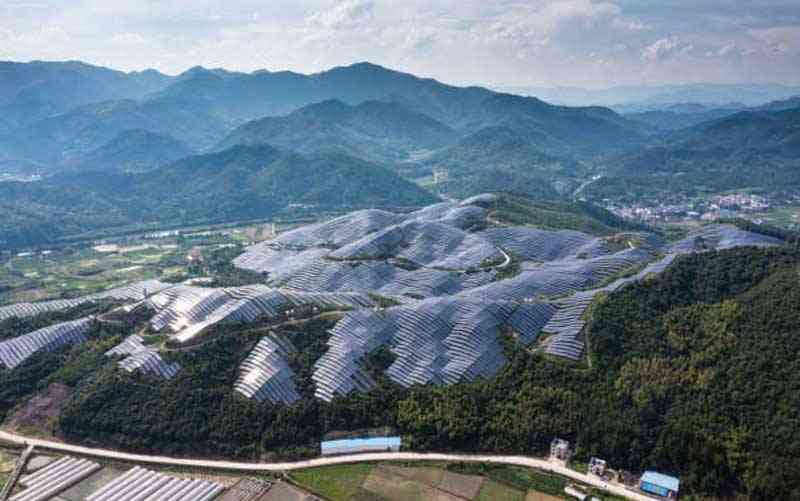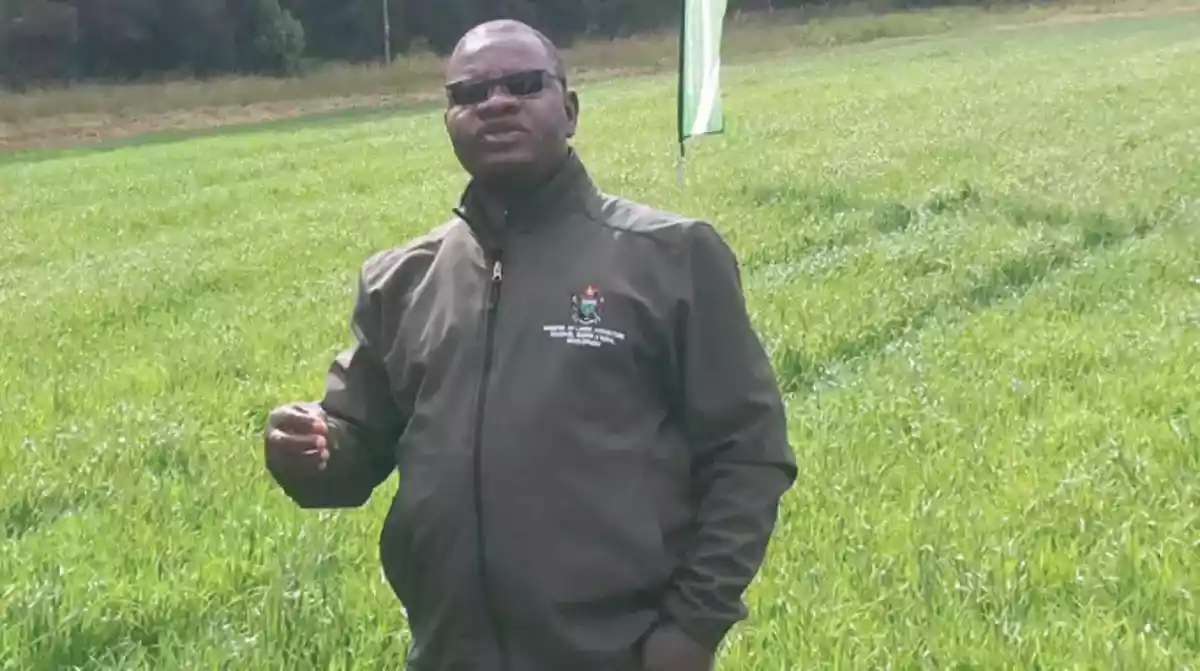
CLIMATE negotiations are complex and challenging processes that involve multiple actors, interests, and issues.
In the next two weeks, Conference of Parties 28 (COP28) roars into life in Dubai, the United Arab Emirates (UAE).
The biggest climate action get together comes at a time when global temperatures have risen by at least 1°C and the stark reality of El Nino is confronting Southern Africa and it would be no surprise that the Zimbabwean delegation will take off before the rain season commences.
It is welcome that preliminary meetings, such as the inaugural African Climate Summit in September 2023 and various local pre-COP summits have been held in Zimbabwe by organisations like the Centre for Natural Resources governance amongst others.
The summit emerges against the backdrop of rising exploitation of natural resources on the African continent by countries like China, which have a strong bearing on the natural environment.
It also comes at a point in time where previous commitments from previous COP meetings have not been duly honoured by Global North countries
Needless to say, a sense of urgency around climate change issues is prevalent in global discussions, at continental, regional and local level too.
This is welcome and COP 28 offers an opportunity for African negotiators to use the Kenyan Summit resolutions as pivot negotiation points and also find ways around existing criticisms of the COP system.
- Foregrounding the capture of climate finance to developing countries
- Why developing countries pin their hopes on climate finance?
- Placement of climate justice in the overall climate change discourse
- Is the emission-free climate future still possible?
Keep Reading
These include:
Trust and credibility
The climate negotiations depend on the trust and credibility of the parties involved, especially between developed and developing countries.
However, this trust has been eroded by the lack of action and support from some major emitters, the failure to deliver the promised US$100 billion per year for climate finance, and the withdrawal and re-entry of the US from the Paris Agreement.
This then casts doubts on the possibilities of the US$1 billion commitment made by the African Development Bank on the continent.
The COP26 summit in Glasgow emphasised on the restoration of trust and credibility by calling for more ambition and action, but also faced some last-minute changes and compromises that disappointed some parties.
Ambition and urgency
The climate negotiations aim to limit the global temperature rise to 1,5°C above pre-industrial levels, as agreed in the Paris Agreement. However, the current pledges and industrial actions of the parties are not enough to achieve this goal, and the world is on track to warm by more than 2,7°C by the end of the century.
The COP27 summit urged the parties to submit and implement enhanced nationally determined contributions (NDCs) and long-term strategies (LTS) that are aligned with the 1,5°C goal, and to review and update them every five years.
However, some parties still lack the political will and capacity to do so, and some sectors and sources of emissions are still not adequately addressed.
Innovation and transformation
The climate negotiations recognise the need for a green and inclusive recovery from the Covid-19 pandemic and a transition to a climate-neutral and resilient economy and society.
However, this requires a massive mobilisation of resources, technologies, and policies that can foster innovation and transformation in key sectors such as energy, transport, industry, and agriculture especially in developing economies.
The COP26 summit highlighted some of the opportunities and benefits of this transition, but also acknowledged some of the challenges and impacts that it may entail, especially for the most vulnerable and affected communities.
On the African continent, it is pivotal that young people find their footing and support for new designs and innovation around asset based green businesses that help with the clean energy transition through network and collaboration with existing leaders.
Countries like China are leaders in clean energy technology and commensurate to their local resource exploitation footprint could be innovation accelerator programmes in developing economies.
Accountability and compliance - the climate negotiations aim to establish and strengthen the rules and mechanisms that ensure the effective implementation and monitoring of the Paris Agreement and its goals.
However, some of the issues and details of these rules and mechanisms are still unresolved or contentious, such as the transparency framework, the compliance committee, the carbon market, and the common time frames. The COP26 summit finalised some of the outstanding issues, but also left some room for interpretation and flexibility that may affect the robustness and comparability of the reporting and review processes.
Africa’s negotiating point in demanding more transparency and accountability from the developed world, which admits to leading as polluters should be matched by equally transparent and accountable institutions to facilitate the ease of movement of climate and adaptation finances.
Raising interest through incentives for communities is also one way of increasing domestic accountability around environmental conservation.
It is noteworthy that local institutions, businesses and activists have been organising a way forward to the initiative and below are some possible negotiation techniques that Africa can adopt to stand a better chance at concrete investment in loss and damage and harness its fullest potential as the continent of the future around clean energy and green businesses.
Building alliances and coalitions
Africa can leverage its collective voice and influence by forming alliances and coalitions with other like-minded parties and groups, such as the Least Developed Countries (LDCs), the Small Island Developing States (SIDS), the Group of 77 and China (G77+China), and the High Ambition Coalition (HAC).
These alliances and coalitions can help Africa to advance its common position, amplify its demands, and increase its bargaining power in the negotiations.
Southern Africa, is presently reeling from El Nino and this along with changing weather patterns across Africa is a concrete shared argument that Zimbabwean negotiators should be professionally aggressive around.
Using evidence and science
Africa can use the latest scientific findings and evidence to support its arguments and proposals, especially on the urgency and magnitude of the climate crisis and its impacts on the continent.
The food insecurity around the Horn of Africa, climate induced migrations in East Africa and rising temperature statistics from local and global research institutions can assist in articulating the effects of Climate change on the continent.
And prescriptive solution design. Africa has to showcase and broadcast its own research and innovation, as well as its best practices and success stories, to demonstrate its own inherent commitment and contribution to the global climate action.
For example, Africa can highlight its achievements and potential in indigenous knowledge systems, renewable energy, climate adaptation, and nature-based solutions.
Seeking support and solidarity
Africa can seek support and solidarity from other parties and stakeholders, such as developed countries, emerging economies, civil society, private sector, and media, to secure the necessary resources, technologies, and policies that can enable its climate action and resilience.
Africa can also appeal to the moral and ethical responsibility of the international community to address the climate injustice and inequality that the continent faces, and to uphold the principles of the UNFCCC and the Paris Agreement.
The solidarity from the inaugural Africa Climate Summit 2023 is great wind in the sails to accelerate rallying up support. The fact that the UAE is an emerging economy with great relations and business with Africa also offers a huge opportunity for solidarity and support for Africa’s needs.
- Mafa is an agricultural economist, Rima Afrika Trust Zimbabwe co-founder and climatetechnology and finance lead at Food Justice Network. — [email protected]. These weekly New Perspectives articles, published in the Zimbabwe Independent, are coordinated by Lovemore Kadenge, an independent consultant, managing consultant of Zawale Consultants (Pvt) Ltd, past president of the Zimbabwe Economics Society and past president of the Chartered Governance & Accountancy Institute in Zimbabwe (CGI Zimbabwe). — [email protected] or mobile: +263 772 382 852.







